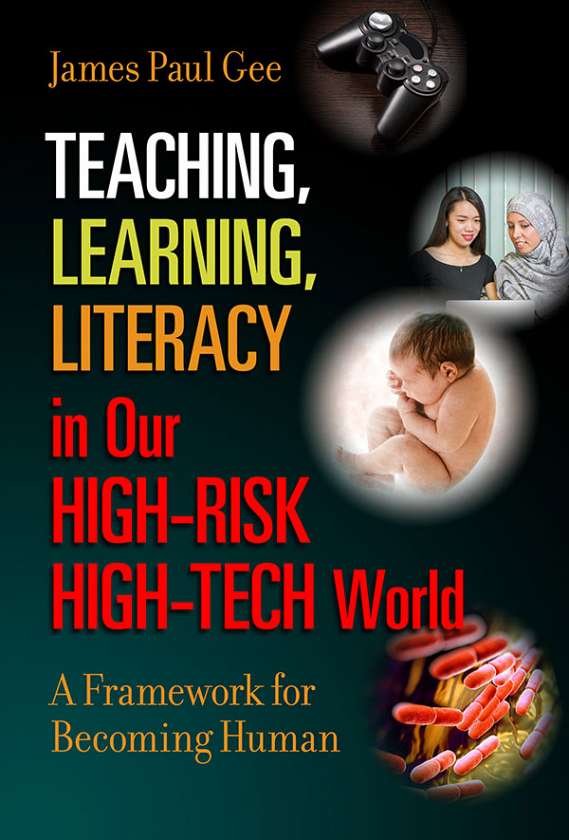Professors: Request an Exam Copy
Print copies available for US orders only. For orders outside the US, see our international distributors.
Publication Date: April 14, 2017
Pages: 192

This is a profound look at learning, language, and literacy. It is also about brains and bodies. And it is about talk, texts, media, and society. These topics, though usually studied in different narrow academic silos, are all part of one highly interactive process—human development. Gee argues that children will need to be resilient, imaginative, hopeful, and deliberate learners to survive the deeply complex and unpredictable world in which they live. In a world beset by conflicting ideologies that give rise to hatred, violence, and war, Gee urges us to look to a broader set of ideas from seemingly unrelated disciplines for a viable vision of education. This book proposes a framework of principles that can be used to reconceptualize education, specifically literacy education, to better prepare students to be collaborators toward peace and sustainability.
Book Features:
James Paul Gee, Mary Lou Fulton Presidential Professor of Literacy Studies and Regents’ Professor at Arizona State University, is a fellow of the American Educational Research Association and a member of the National Academy of Education.
"This text is a reminder that action and understanding are needed to begin the work of enacting change in schools. The need for equity and justice in education, perhaps founded on an understanding of human development, are greater than ever."
—Teachers College Record
"James Paul Gee’s Teaching, Learning, Literacy in Our High-Risk High-Tech World: A Framework for Becoming Human emerges as an informative text. Offering a balance of insight, optimism, and caution, Gee, a prominent scholar on gaming theory, explores the impact of technology on literacy and learning in this new book."
—Research in Online Literacy Education (ROLE)
" Teaching, Learning, Literacy in Our High-Risk High-Tech World: A Framework for Becoming Human maintains that children need to be creative, flexible, purposeful learners if they are to survive the modern world, and urges a multidisciplinary approach to developing and encouraging different ways of viewing the world and its adversities."
—Donovan's Bookshelf
“A highly readable tour de force on development, teaching, and learning in the digital age by one of the most original thinkers in the social sciences; I think of Gee as an heir to Dewey.”
—David C. Berliner, Regent’s Professor of Education Emeritus, Arizona State University
How do we become more fully human in our vexed and complex world? For this foundational question, James Paul Gee gives us a framework for thinking and action, bringing to bear an enviable career’s worth of theorizing on learning, literacy, and human development. He leads with first principles, foregrounding our human need to belong, to matter, and to contribute, and from there he weaves a most readable narrative about the power of affiliation and collective intelligence and the necessity of critical reflection and respectful dialogue in an uncertain, risk-ridden world. This is the boldest and broadest of Gee’s already expansive and influential body of work—simply and durably a must-read for citizens, parents, educators, and academics.
—Glynda A. Hull, University of California, Berkeley
“Gee’s superb understanding of contemporary contexts and the ways in which children and adults learn are leveraged in this engaging book to make a case for ‘what we should do now’ that is sharp, insightful, and profoundly normative. The world would be a better place if all educators took seriously Gee’s recommendations to keep the ‘long battle for human dignity going’.”
—Diana Hess, dean, University of Wisconsin-Madison School of Education
Professors: Request an Exam Copy
Print copies available for US orders only. For orders outside the US, see our international distributors.